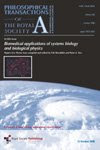Carbon Capture and Sequestration
Overwhelming scientific evidence shows that CO2 emissions from fossil fuels have caused the climate to change, and a dramatic reduction of these emissions is essential to reduce the risk of future devastating effects. On the other hand, access to energy is the basis of much of the current and future prosperity of the world. Eighty percent of this energy is derived from fossil fuel. The world has abundant fossil fuel reserves, particularly coal. The United States possesses one-quarter of the known coal supply, and the United States, Russia, China, and India account for two-thirds of the reserves. Coal accounts for roughly 25% of the world energy supply and 40% of the carbon emissions.* It is highly unlikely that any of these countries will turn their back on coal any time soon, and for this reason, the capture and storage of CO2 emissions from fossil fuel power plants must be aggressively pursued.
Steven Chu is the U.S. Secretary of Energy and a Nobel Laureate in physics.
Source:
Science, 25 September 2009 (Volume 325, Issue 5948), free alerts









